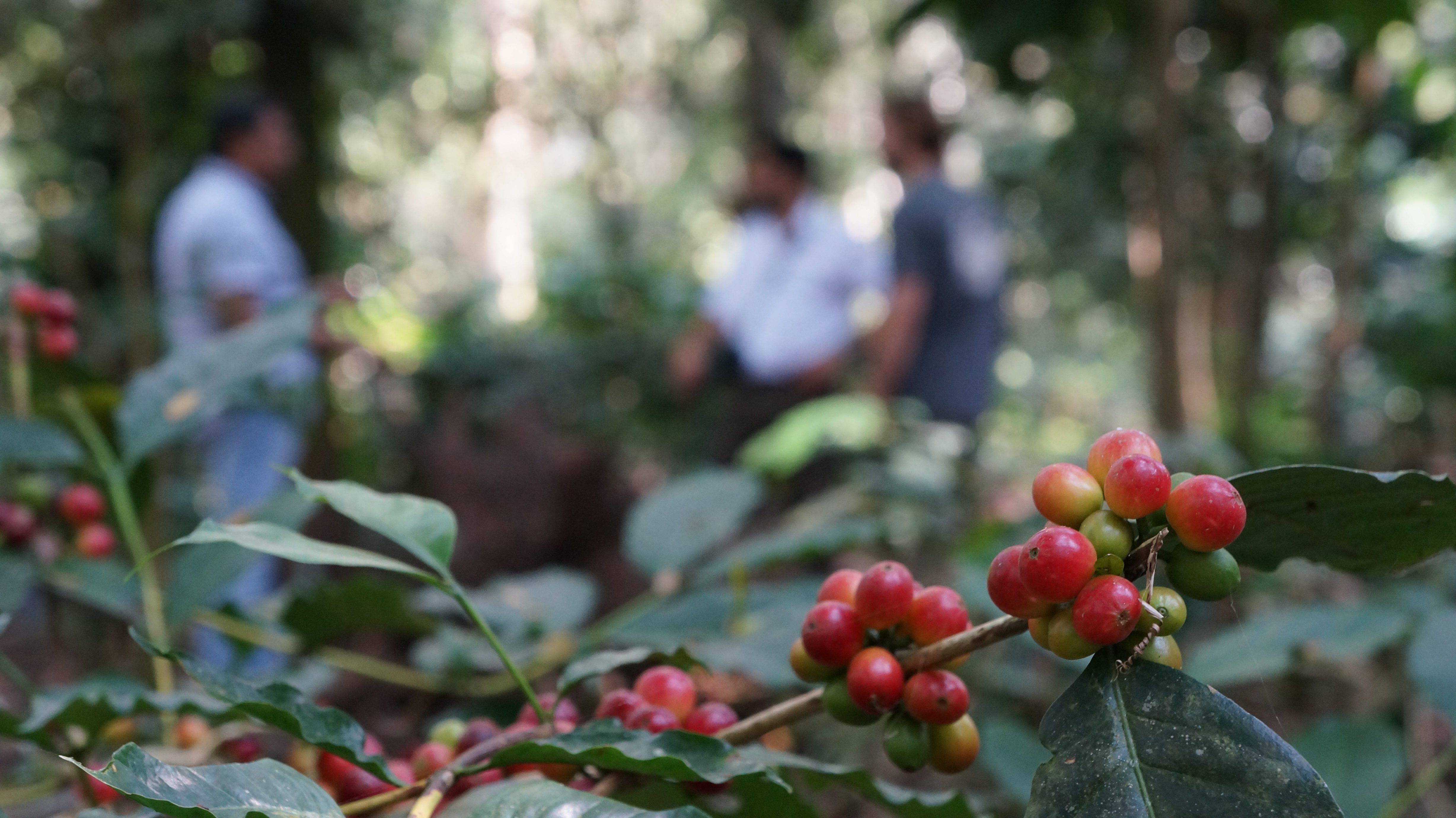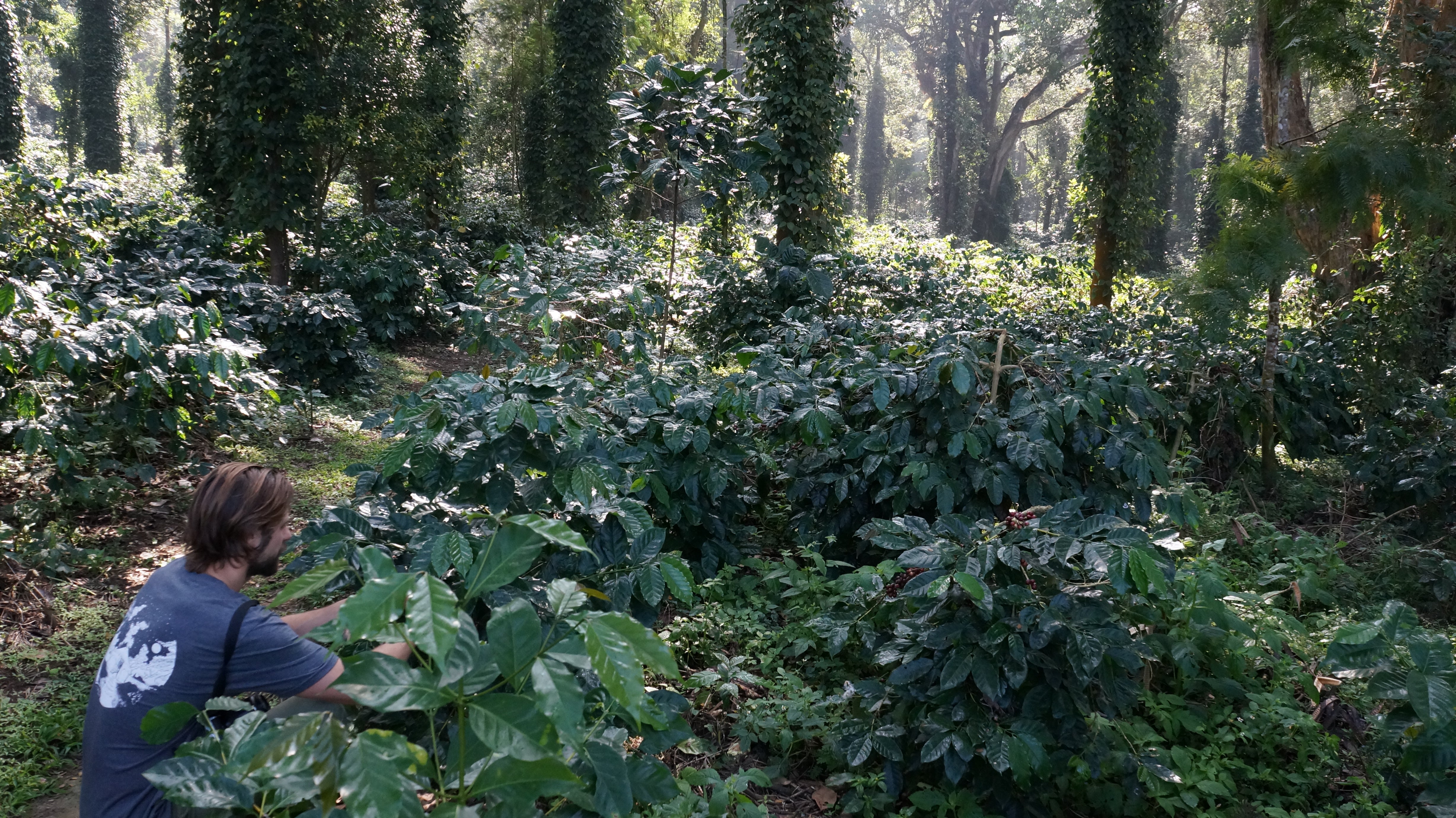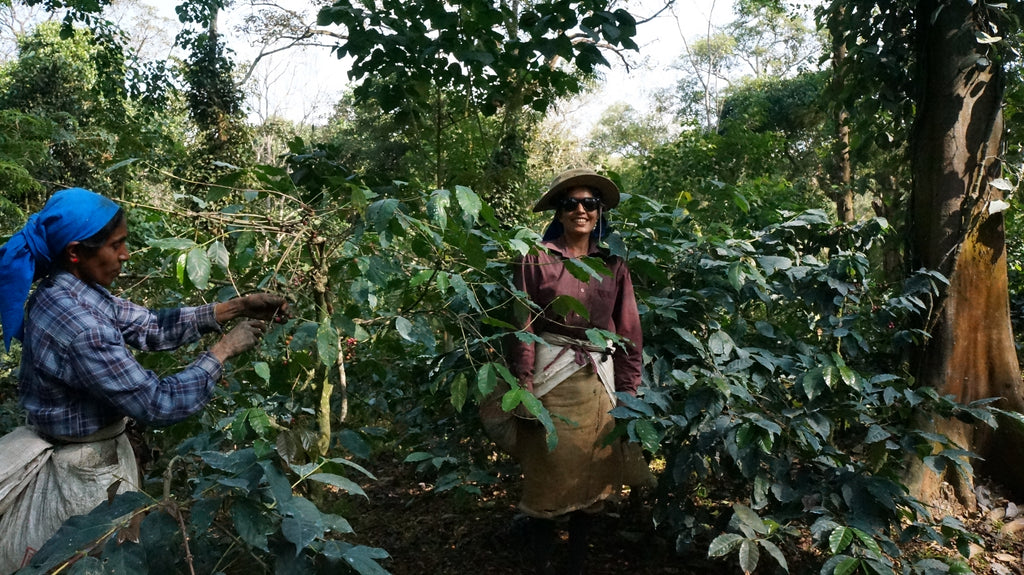Having returned successfully from our first trip to origin in Karnataka, India last December (2017), we, the Pilgrims Coffee [Roastery] team, are really excited to showcase the fruits of a blossoming relationship with the South Indian Coffee Company.



It was a fortunate tern of events which led to a mutual ornithologist friend connecting the Holy Island Roasters to the owners of a modest 75 acre coffee estate in the foothills of the western Ghat mountain range in the south west of India.
In line with our ethics to ensure fair trade, sustainability and transparency and our desire to learn (even) more about the coffee we offer; we're thrilled to be able to source ourselves directly traded beans to the benefit of everyone out there working in and around the farm. The estate employ 12 full-time workers who care for the coffee year-round, not just during the picking season which takes place late November to February. Some extra pairs of hands are contracted in to help during peak harvest, when a lot of coffee cherries need picking in a relatively short space of time.
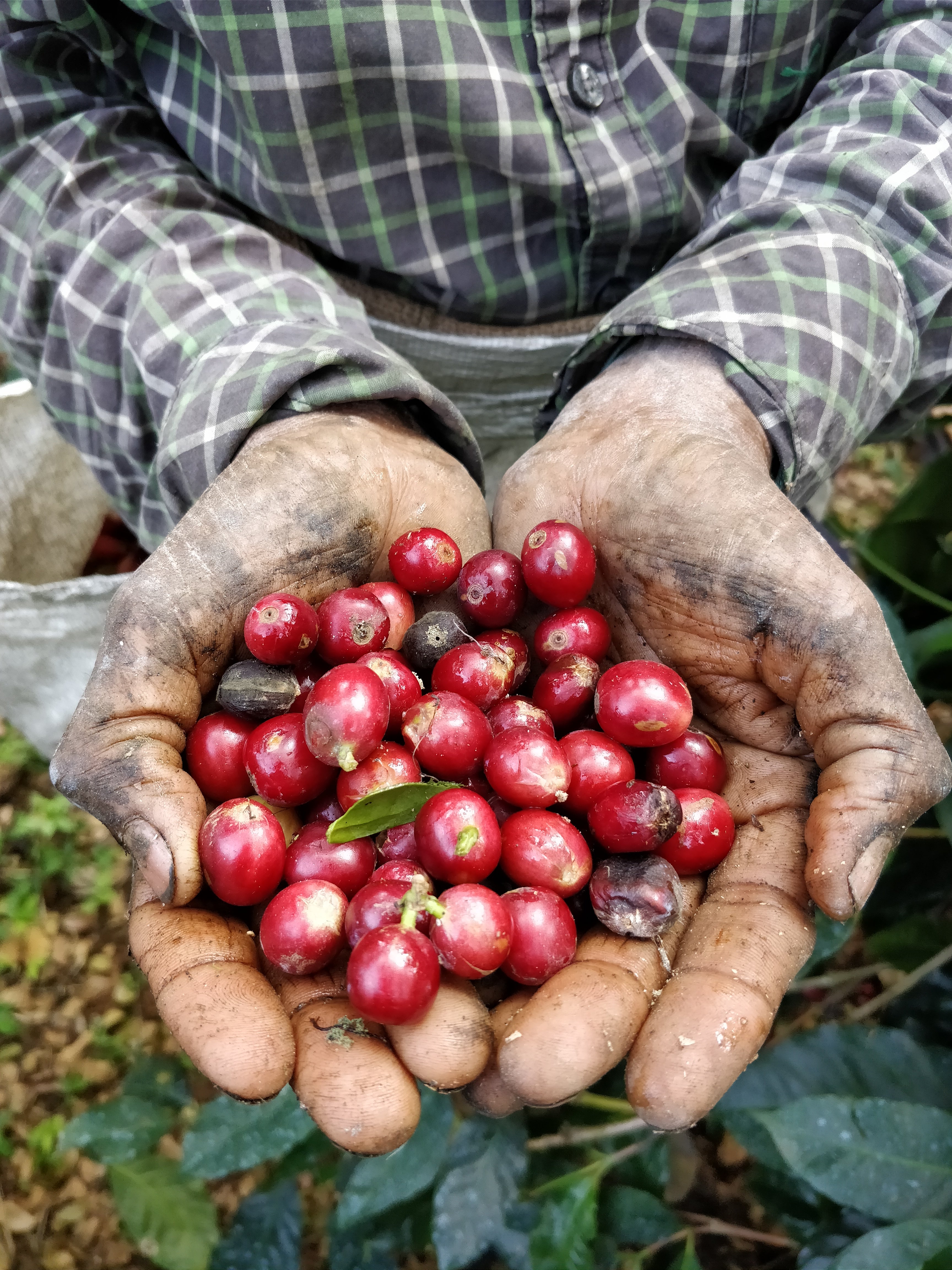
We have secured 2 tonnes of green coffee beans which, as of spring 2018, will spice up the Daily Bread blend. The varieties going into the blend, which make up most of the aforementioned 2000kg, are Catuai and SLN 09. Once upon a time, over a hundred years ago, the whole estate, planted by the now estate owner's great-Grandfather, was comprised of one single variety: Kent. Now, only a handful of these coffea arabica trees remain, and we're so pleased to be able to offer the totality of this harvest as one of our single origin (try single estate!) coffees. This year these remaining old Kent coffee trees yielded just over 50kg of green beans, all coming soon to a familiar Yurt near(er) you, so keep your eyes peeled as it wont be round for long!
The vines on the trees are peppercorns, a vital cash crop for most coffee plantations in this part of India.
As a teaser from our visit, and in anticipation of our Spring shipment, we flew back to the UK with 20kg of green coffee beans, which Andrew deemed as "...an essential use of your carry-on luggage, Jonny". This sacrifice has given us an ideal head-start in perfecting a new roast profile and formulating a mouth-watering Daily (Naan) Bread blend.
We spent plenty of time with the jovial pickers who were very happy to showcase their skills picking only the best cherries. One reason most coffee farmers prefer to grow coffea robusta is that as well as it being easily maintained and high yielding, it can all be strip picked in one go, unlike the coffea arabica; since the buyers are only interested in the ripest cherries, the arabica trees must be picked in two or three passes.
Once the days picking is over, the pickers are collected and brought to the pulping station, where the coffee is double checked for quality and weighed. At the end of each week the pickers will be paid according to the weight of the cherries they've collected.
The coffee then starts its journey through the pulping station.
The coffee is first loaded into a large vat of water where the underripe or rotten cherries float and only the ripe dense fruit sinks and passes through to the de-pulper, here the outer skin of the cherry is separated from the seed (coffee bean). The skin of the cherries flow through a pipe and are used at this particular facility to fertilise the crop for the coming year.
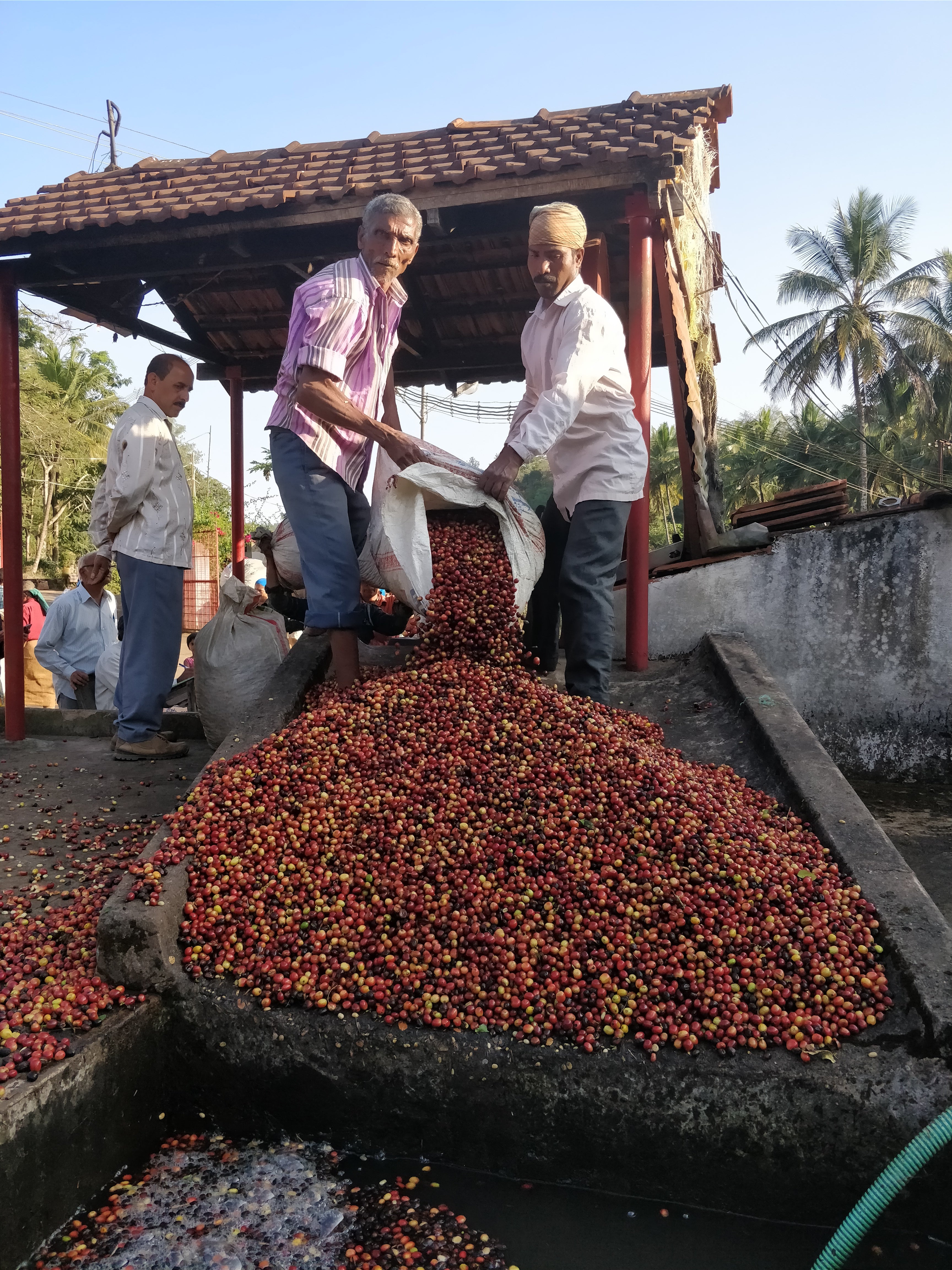
The beans flow in another direction to a large collecting tank, from here they make their way to the drying patios where they are raked out during the day, then piled and covered at night. This process lasts for 12-16 days until the coffee reaches the desired moisture content.
Parchment coffee drying.
The trip was an incredible experience. From the moment you woke to collapsing in bed at night, India overwhelmed the senses. The sights, sounds and smells of this wonderful place were full on and we loved every minute. We will most certainly be scheduling another business* trip there in the near future.
* i use this term very loosely.
